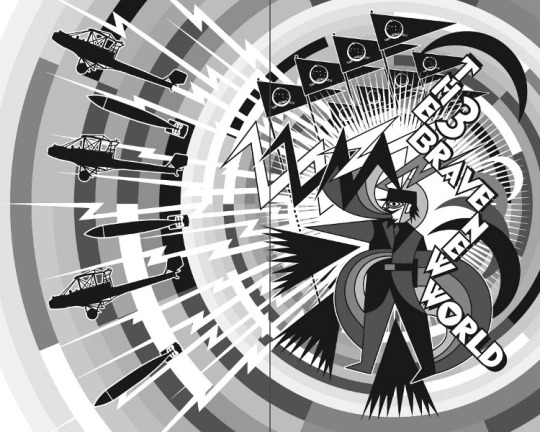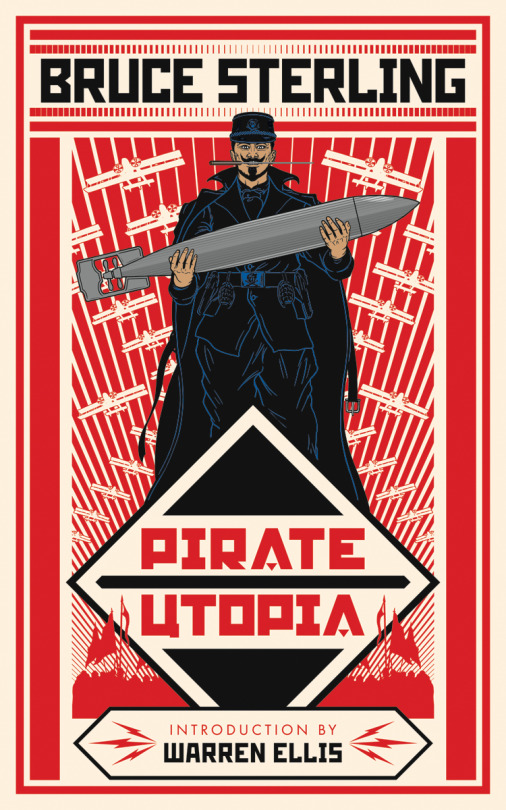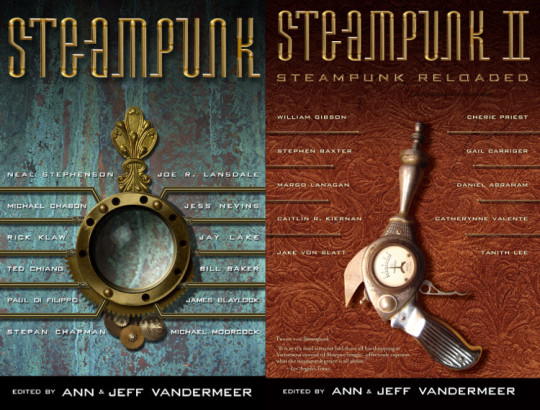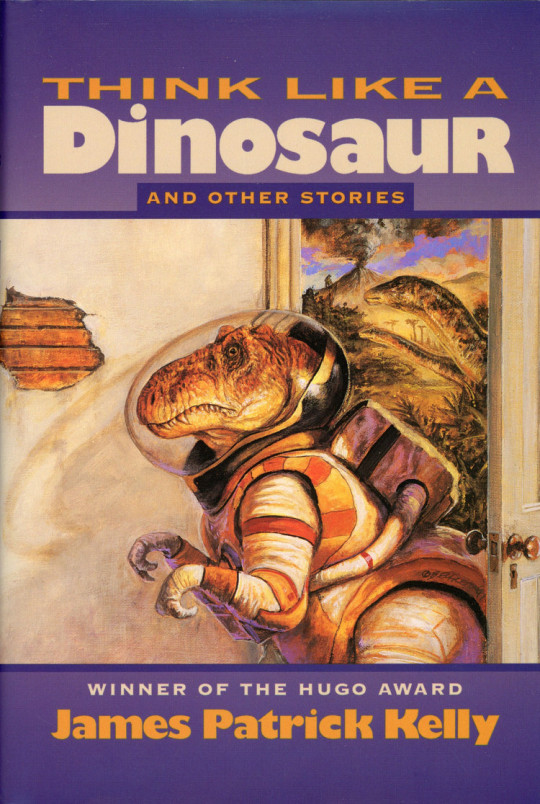Tachyon tidbits featuring Bruce Sterling, James Patrick Kelly, Ann & Jeff VanderMeer, and Jo Walton
The latest reviews and mentions of Tachyon titles and authors from around the web.

Bruce Sterling (credit: The Verge), James Patrick Kelly (Bill Clemente), Jeff & Ann VanderMeer (Quackstyles of the Rich and Famous), and Jo Walton (Ada Palmer)
At THE FRUMIOUS CONSORTIUM, Doug Merrill enjoys Bruce Sterling’s Sidewise Award-nominated PIRATE UTOPIA.
The collapse of the European empires at the end of World War I produced considerable political strangeness. Béla Kun. The Czech Legion in Siberia. The Bavarian Soviet Republic. Baron Ungern. Flights of fancy, seizures of power, and some powerfully fancy seizures. In PIRATE UTOPIA, Bruce Sterling sails off to another corner of collapsing empires rubbing up against barely victorious powers: the city of Fiume, which had been Austrian before the war, promised to Italy during hostilities, and awarded to the future Yugoslavia at the peace conference.

Sterling picks up the story of the Regency, mashes it up with some plausible alternative events, and puts it all into overdrive with the energy and polemical voice he poured into the Viridian Green art movement. John Coulthart’s design and illustrations aid and abet Sterling’s piratical pillaging of history, dressing the tale up in Futurist garb and reminding readers that the revolutions of the early 20th century aimed to sweep art and technology along with them, and not merely power and politics.
In our world, the Regency turned out to be a dress rehearsal, in several senses of the phrase, for Italian Fascism. D’Annunzio proclaimed himself Duce; he and his legionnaires set up a corporatist microstate.
In PIRATE UTOPIA, D’Annunzio goes by one of the nicknames he had in history, “The Prophet.” He is surrounded by an improbable cast that includes The Ace of Hearts, Lorenzo Secondari (the Pirate Engineer), and Blanka Piffer (mad dictator of her Torpedo Factory). They are trying to make revolution, they are trying to revolutionize technology, they are trying to bring justice. They are also trying to stay on top, keep their several lovers, and do it all with style. The story itself is relatively brief, a bit more than 150 smallish pages with plenty of whiz-bang Futurist graphics. In revolutionary style, gestures stand in for longer scenes, and much of the action is implied. Then Houdini shows up, with H.P. Lovecraft and Robert E. Howard in tow; an escape is not the only magic he proposes. The future looks bright!

Even though the books are anthologies, Paul Roland for PAN MACMILLAN includes Ann and Jeff VanderMeer’s STEAMPUNK and STEAMPUNK II: STEAMPUNK RELOADED among Ten Essential Steampunk Novels.
My final choice is an anthology and one of the best of the many that have been published to capitalise on the steampunk movement. The VanderMeer’s are leading lights in the SP community so their selections can be relied upon to satisfy even the most jaded SP reader. Extracts from Moorcock and Blaylock were presumably included to lure the newcomer and don’t do more than whet the appetite for more of the same, but there are top drawer stand-alone stories from Mary Gentle (‘A Sun In The Attic’), Ted Chiang (‘Seventy-Two Letters’) and Paul Di Filippo (‘Victoria’) in the first volume plus two excellent essays on the influence of SP in pop culture (‘The Steam-Driven Time Machine’) and SP in comics (‘The Essential Sequential Steampunk’).

The second collection casts its net wider to take in tales that might be described as only marginally SP, but that’s not such a bad thing if it allows the inclusion of William Gibson’s ‘The Gernsback Continuum’, Stephen Baxter’s ‘The Unblinking Eye’ and ‘The Unbecoming of Virgil Smythe’ by Ramsey Shehedeh). Vol 2 also boasts ‘Tanglefoot’, a short story from Cherie Priest that is grounded in her Clockwork Century world and excellent genre defining fiction from Jeffrey Ford (‘Dr Lash Remembers’), Daniel Abraham (‘The Adventure of the Emperor’s Vengence’) and G.D. Falksen (‘The Strange Case of Mr Salad Monday’) which must rank as some of the finest of their kind.

In NEW HAMPSHIRE MAGAZINE (January 2018), Rick Broussard profiles James Patrick Kelly.
James Patrick Kelly, who won the Hugo Award for his novelette “Think Like a Dinosaur,” was willing, and he turned in a provocative essay that we’ve attached to the main bar of our “Next Hampshire” story (it all starts on page 40). Kelly’s speculative fiction tends to avoid post-apocalyptic scenarios, as he prefers to deal in the “what ifs” of the future with the assumption that folks will still be around to enjoy or endure whatever progress brings to humankind. His glimpse into the Granite State of tomorrow is mind-expanding the way that good fiction can be, but his predictions are not far-fetched at all.
While composing this note, I asked Kelly for some future-thoughts about libraries. After all, the ability to store our knowledge and wisdom and to make the information available for others to learn from or challenge is the basis of all our futuristic aspirations (not to mention our present-day civilization, such as it is).
He replied, “To me, the future of libraries lies in the curatorial expertise of the librarian. It may be that librarians will be freed from the tyranny of molecules and will do their jobs at home or away from stacks of books — not in a physical library. Instead, you’ll want your freelance librarian to point you toward some particular corner of the internets where you can find the precise cross-platform materials to satisfy your information needs. The librarians of the future will be web tamers, sorting the signal from the deafening noise of the Age of Big Data.”
UNCANNY MAGAZINE offers the short story “A Trump Christmas Carol” by Roz Kaveney, Laurie
Penny, John Scalzi, and Jo Walton.
Democracy was dead to begin with.
There was no doubt whatsoever about that. The election proclaimed it and the electoral college confirmed it and Trump himself signed off on the note, vaguely annoyed that Clinton had somehow still gotten 2.9 million votes more than he had. Well, they were from California. Everyone knew California didn’t count.
Not that Trump painted out Democracy’s name on the door of the business; it served him well, in that White House, to give the impression that Democracy was alive and — well, if not well, then perhaps just out for a walk, a mere perambulation around the grounds before coming back and sitting back down at its now-vacant desk, shoved into the corner as it was between Trump’s own gaudy, gilt-edged desk, and the desk of their wretched clerk, Mike Pence, to whom Trump had grudgingly given the title of Vice-President. Yes, pretending that Democracy was still alive suited Trump just fine.
The muttering of his private security people alerted Trump that Jared, his son in law, and one of his minor advisors whose advice he definitely didn’t take on everything, had entered the room. “The happiest of holidays to you, Mr. President!” he said, with immense cheer.
“I know you’re a Jew, but say ‘Merry Christmas,’ Jared, damn it!” Trump replied. “We campaigned on it! Bannon says the Social Justice Warriors hate Christmas, so we have to go hard.”
“Sorry, sir,” Jared said. “Merry Christmas.”
For more info on PIRATE UTOPIA, visit the Tachyon page.
Cover and image by John Coulthart
For more info about STEAMPUNK, visit the Tachyon page.
Cover by Ann Monn
For more info about STEAMPUNK II: STEAMPUNK RELOADED, visit the Tachyon page.
Cover by Dan Jones (Tinketbots)
Design by Ann Monn
